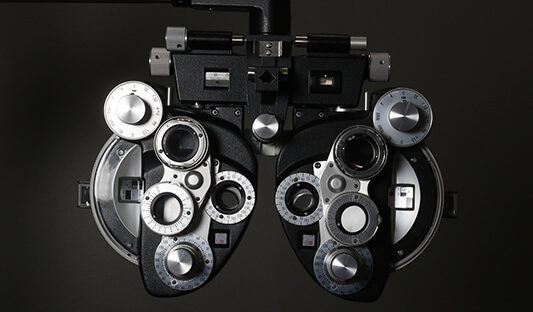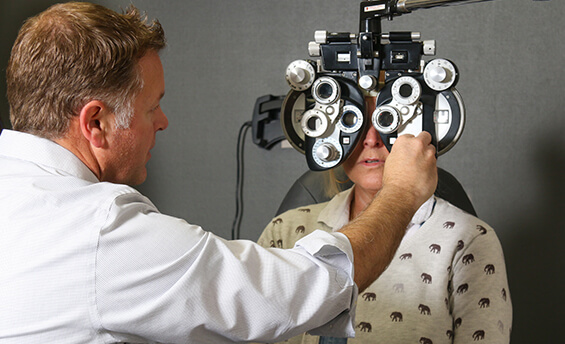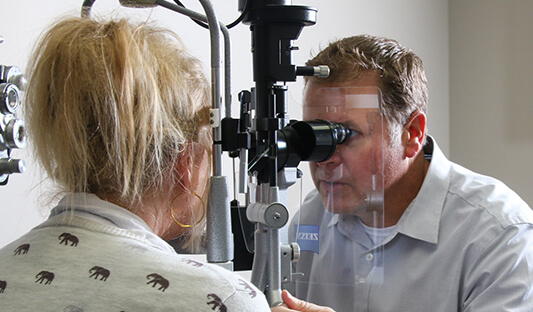Comprehensive Eye Exams at Missouri Eye Consultants
With more than 60 years of eye care experience, Missouri Eye Consultants is committed to keeping our communities seeing clearly. That starts with preventative care like our comprehensive eye exams, one of the most thorough in the state!

What is a Comprehensive Eye Exam?
A yearly eye exam lets us perform a thorough check of your eye health. We use advanced technology that lets us catch eye diseases much earlier, making it easier to protect your vision long-term. That way, we can keep your eyes in great shape and get your vision prescription up-to-date. Simply put: a comprehensive eye exam helps us track your eye’s changes and take action to meet your vision needs.
Why Choose Us?
For over 60 years, we’ve been a trusted eye care provider for an ever-growing number of communities in our home state of Missouri — and we want our neighbors to see as clearly as possible. We use HD imaging and other diagnostics equipment to get a complete picture of your eye health. If we find any issues with your eyes, we have all the expertise and technology needed to take care of them!

Expert Eyecare for Over 60 Years
Our doctors are trusted members of their communities, known equally for their compassion and expertise in a wide range of eye health fields. Learn more about our skilled staff and how they can help you see as best as you can.

What Can I Expect During a Comprehensive Eye Exam?
When you visit Missouri Eye Consultants for an eye exam, it may be a bit different than what you’re used to if you usually visit large retailers. We go in depth to get a complete picture of your eyes and their health, pairing our use of modern technology with the expertise of our locally-based staff. You can expect caring treatment from our doctors, who take the time to explain our technology and answer any questions about your personal eye health.
You’ll never have to wait long, as our wait times across our convenient offices are very short, and then you’ll have our complete attention and focus when it’s time to examine your eyes. Your eyes and vision are too important to risk missing any important details about them, and we provide a level of personalized care you just won’t get at a big box retailer.
Our Technology
We believe in using the latest technology to fully understand your vision and eye health. We use that equipment as part of our process to provide comprehensive testing and comfortable treatments, personalized to your needs.
